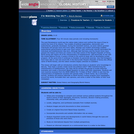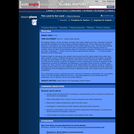
The post-Renaissance world saw the nation-state mature and confront the issue of how to control the lives of its citizens. Two models of political organization, democratic and authoritarian, gradually developed. During the twentieth century, as some nations granted individuals and groups more and more rights, ideology and modern technology enabled authoritarian governments to gain ever more control, until community interest dominated the individual and totalitarianism was born. Although Nazi Germany and the Soviet Union have passed into history and there are cracks in the total control of the People's Republic of China, North Korea still retains all of the characteristics of totalitarianism. Still technically at war with the United Nations Forces, it poses a threat to the world at large with its developing nuclear program. At the same time it continues to threaten its perceived enemies. Very few foreigners have been able to visit and record life in the Democratic People's Republic of Korea (the official name of North Korea), and the nation remains largely unknown to outsiders. This lesson will begin with an introductory activity that draws on students' prior knowledge to discuss, 'How does a society create social and political order?' After brainstorming the characteristics of totalitarianism, the class will be divided into groups to locate historical examples and create a Document Based Question to share with their classmates. Students will next examine excerpts from the WIDE ANGLE film 'A State of Mind' (2003) to see how the characteristics of totalitarian societies still operate today in North Korea. As a culminating activity, students will analyze editorials on North Korea's nuclear program from newspapers around the world, formulate their own opinions, and write a Letter to the Editor of their local newspaper.
- Subject:
- History
- World History
- Material Type:
- Activity/Lab
- Lesson Plan
- Teaching/Learning Strategy
- Provider:
- Thirteen/WNET New York
- Provider Set:
- WIDE ANGLE: Window into Global History
- Author:
- Mirla Morrison
- Date Added:
- 05/19/2006
